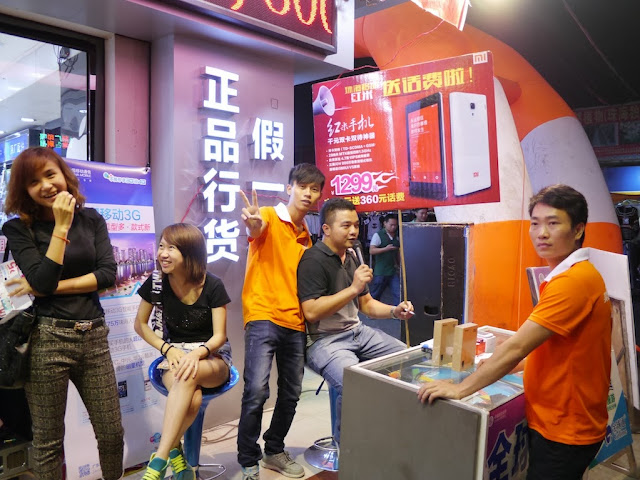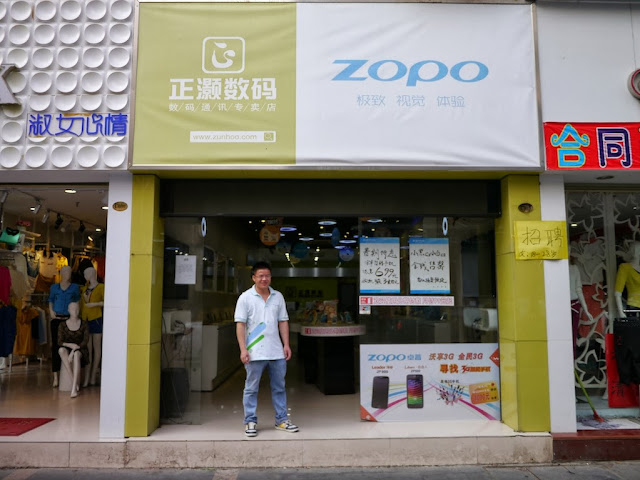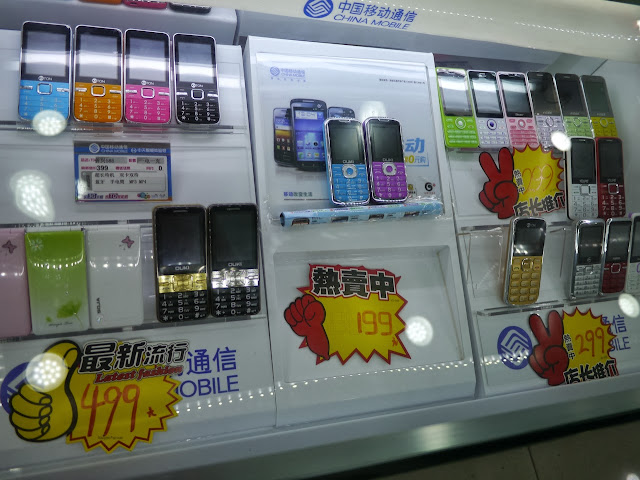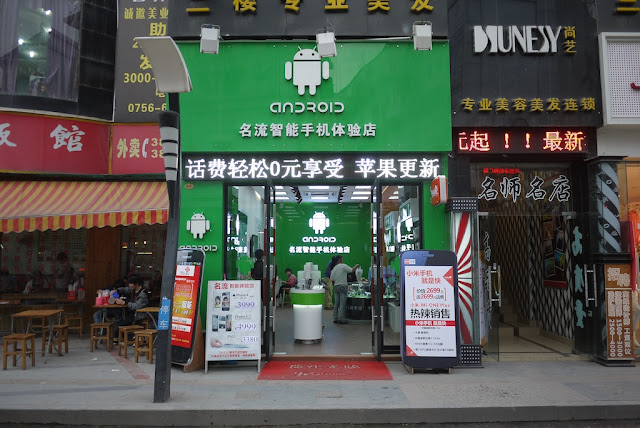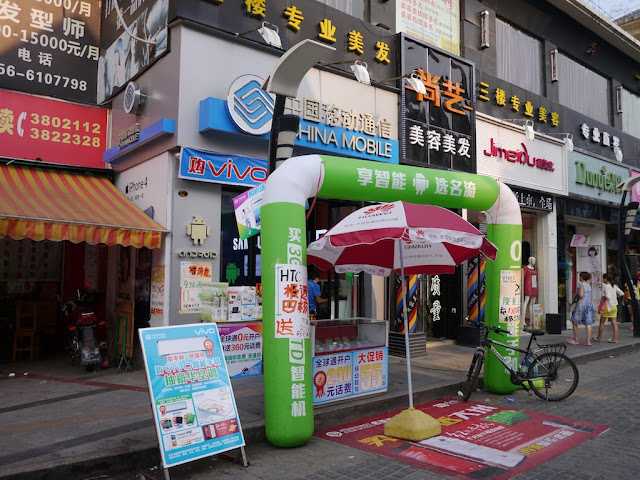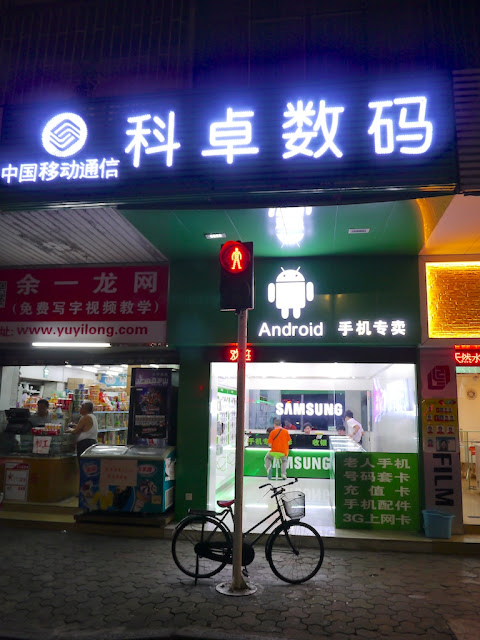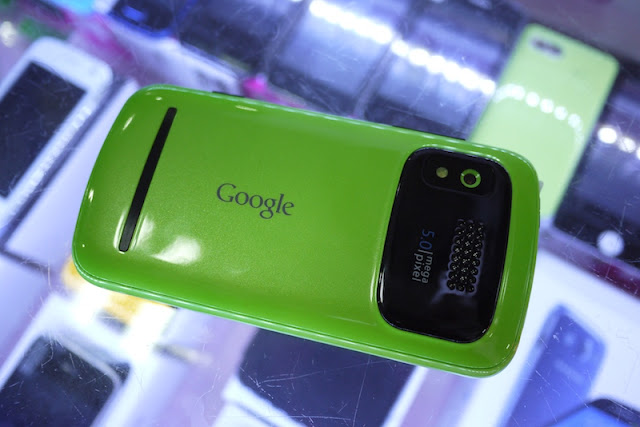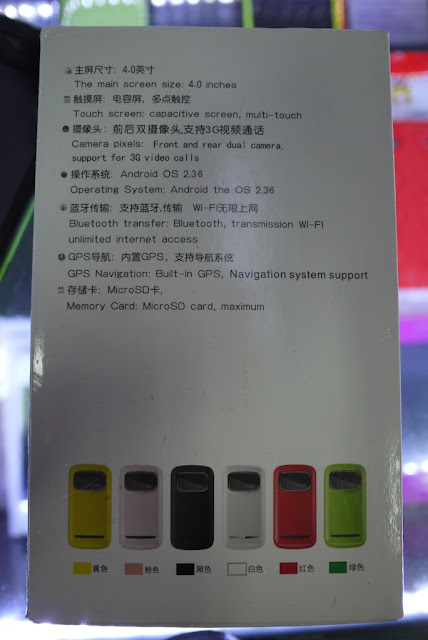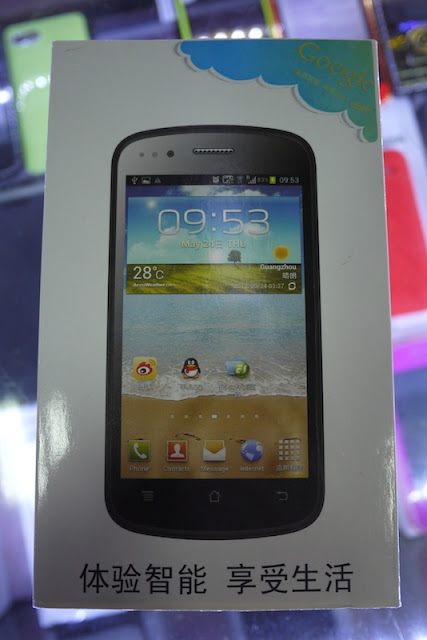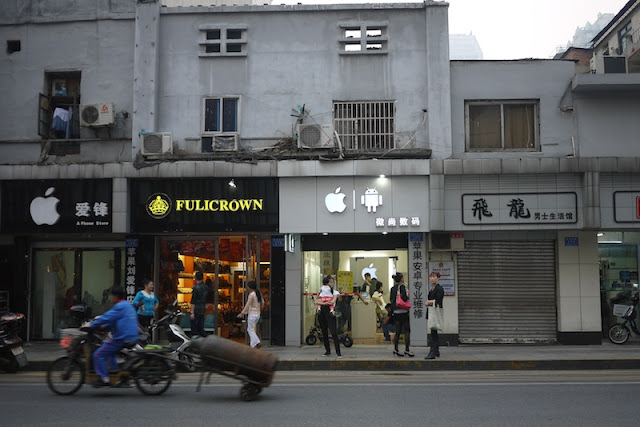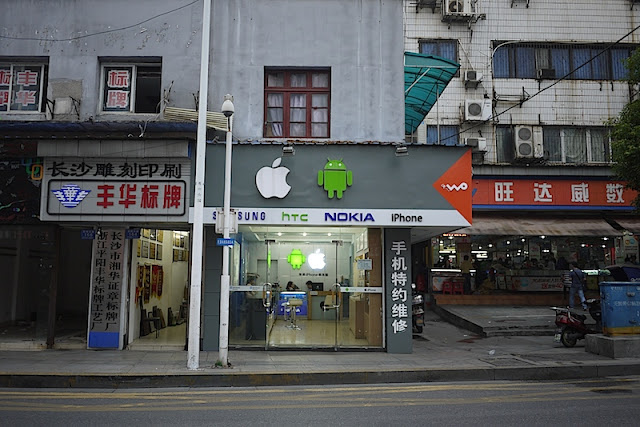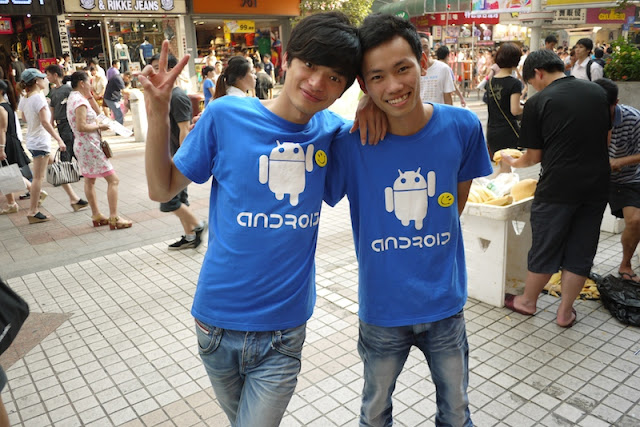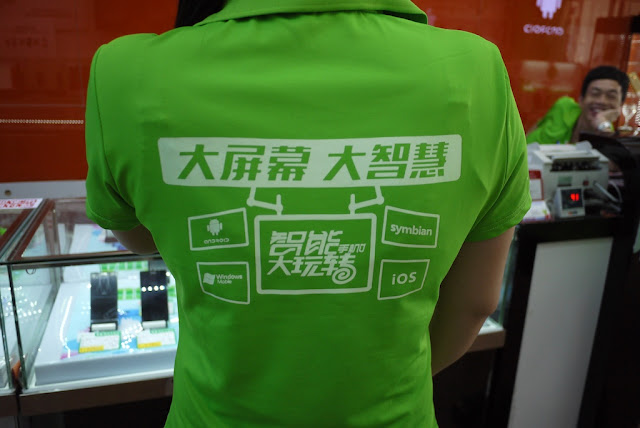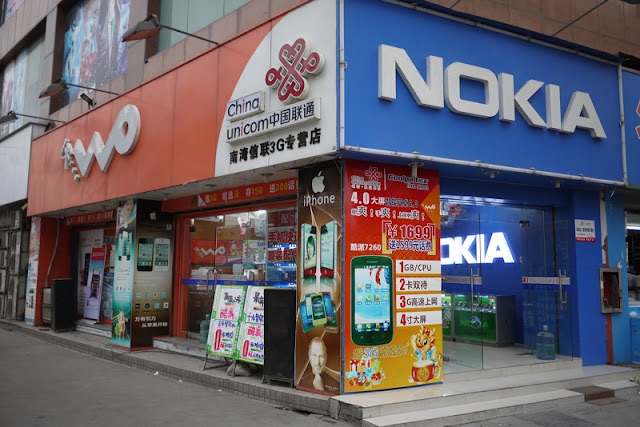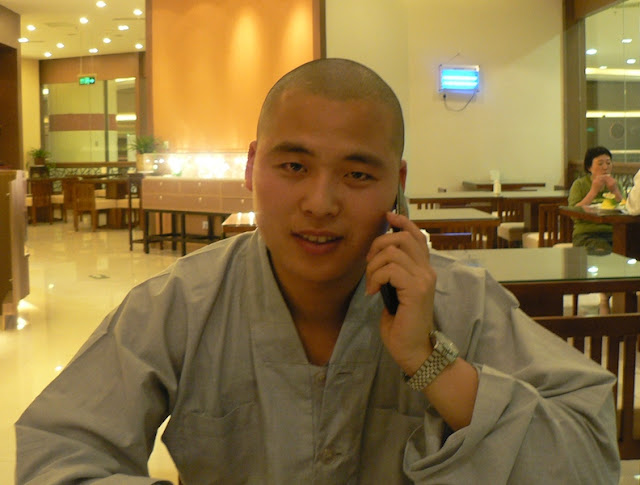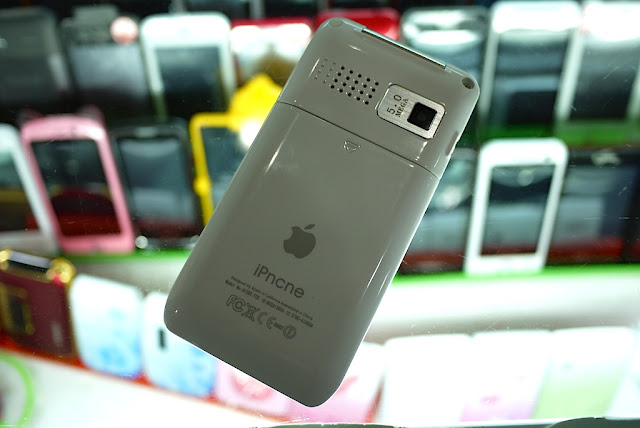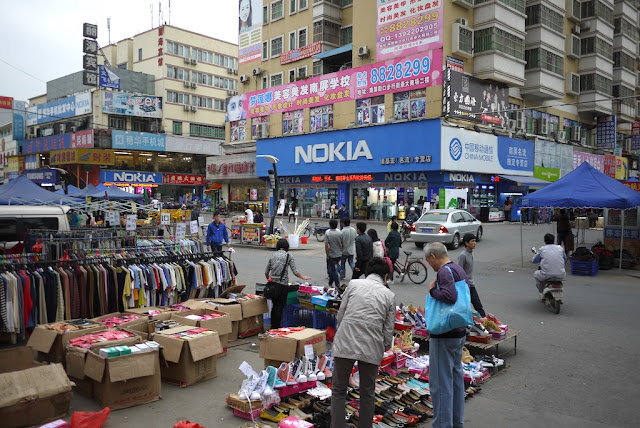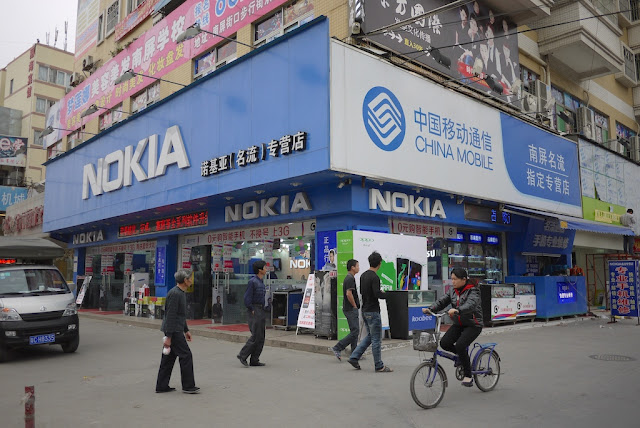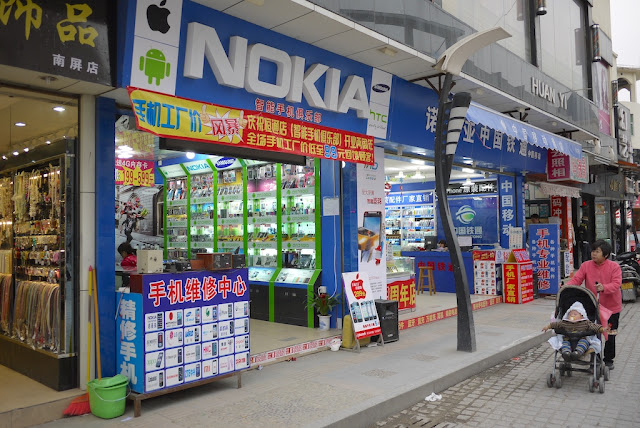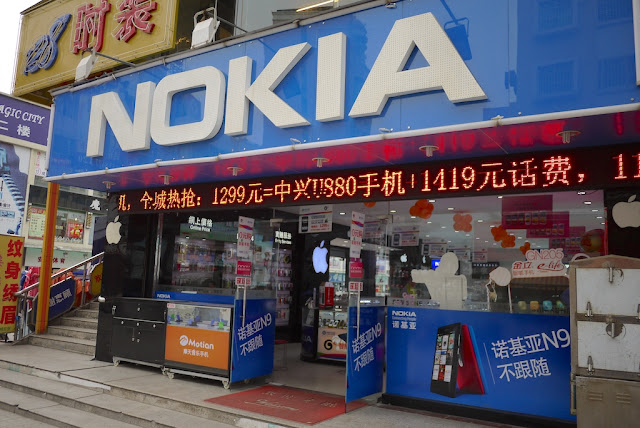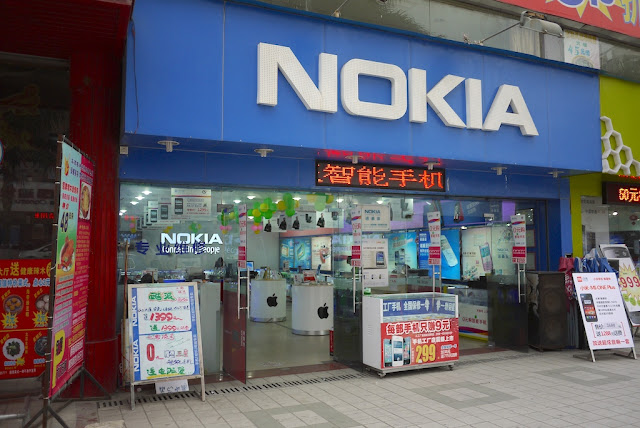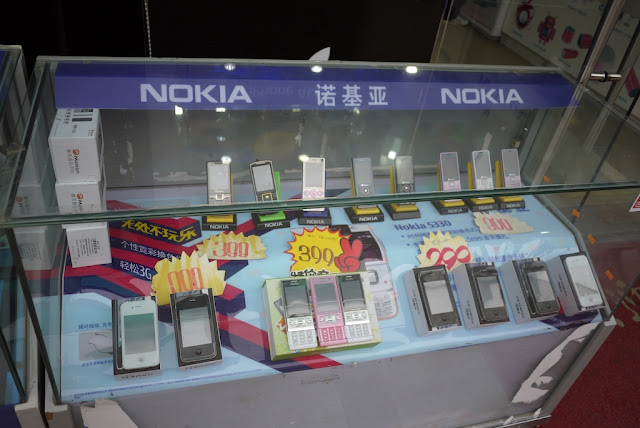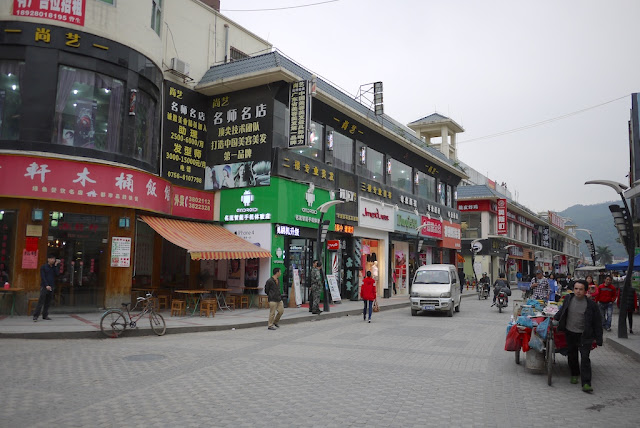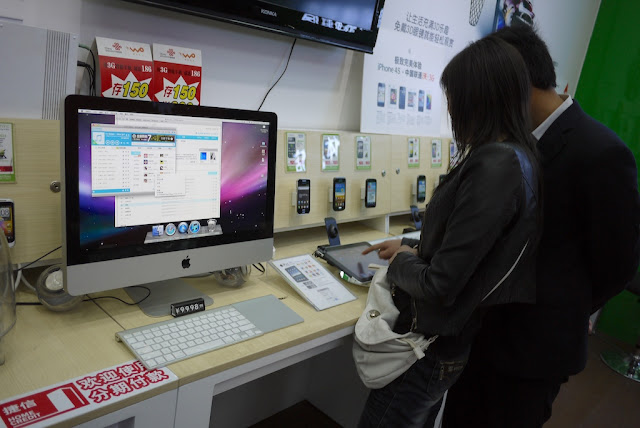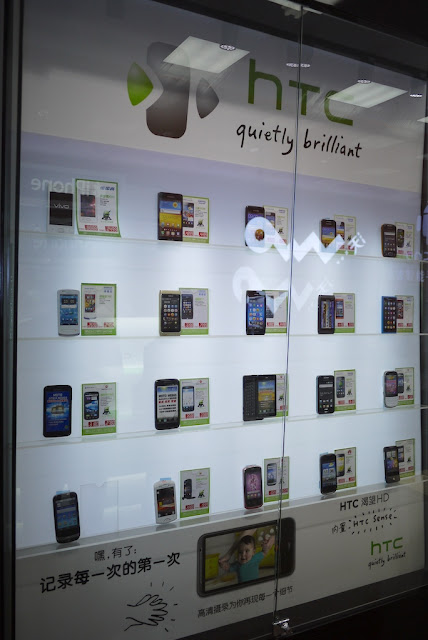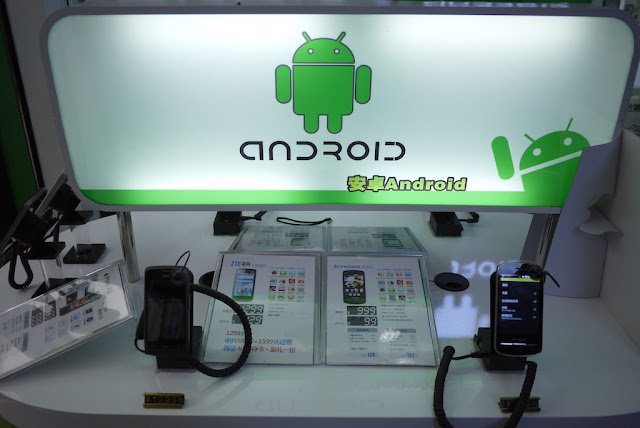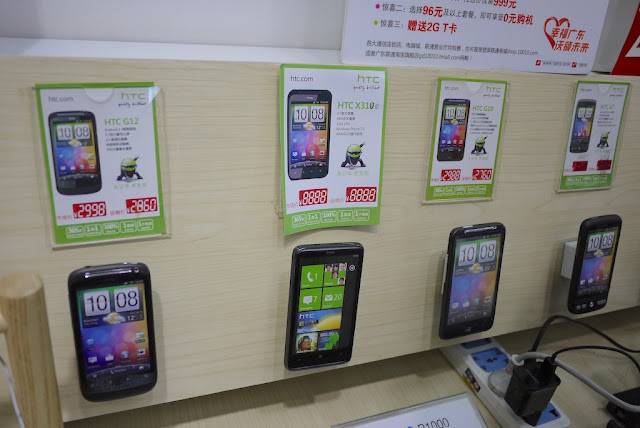The most recent U.S. presidential debate touched on some China-related issues, and I would like to comment on at least one of them.
No, this post will not be about the single question from a Shanghainese female I know:
Binders of women. What does 'binders' mean here?
Nor will it be about the many creative answers she received from friends.
Instead, I want to focus on this statement by Mitt Romney (copied from a debate transcript
here):
We can compete with anyone in the world as long as the playing field is level. China's
been cheating over the years. One by holding down the value of their currency. Number two, by stealing our intellectual property; our designs, our patents, our technology. There's even an Apple store in China that's a counterfeit Apple store, selling counterfeit goods. They hack into our computers. We will have to have people play on a
fair basis, that's number one.
When listening to the debate live, Romney's reference of the "counterfeit Apple store, selling counterfeit goods" struck me as peculiar. I had assumed he was talking about the widely-reported
"fake Apple Store" in Kunming. But that situation has long since been resolved, and I am not aware of any evidence that the Apple products it sold were counterfeits. However, it would be easy for me to believe there exists at least one store somewhere in China that could be reasonably called a "counterfeit" Apple store and that sells counterfeit goods of some sort (even if they aren't Apple products but instead are accessories designed by other companies). Since it is not clear which exact store Romney is referencing and he does not specify which type of goods are being counterfeited, I would not consider Romney's Apple store claim to be necessarily untrue. But whether he was referencing the store in Kunming or another store in China that has somehow caught his attention, I am not convinced the example was relevant in regards to arguing that the playing field is not level in China.
As I have detailed before,
what counts as a "fake" Apple store can be fuzzy. And since so many potential offenders can still be found, at least at the moment
Apple may only be taking action against those that go to extremes in imitating a real Apple Store. Furthermore there exist many Apple-authorized retail stores in China that are not Apple Stores, and it is not illegal for unauthorized stores to resell genuine Apple merchandise in China (see previous two links for more about these topics and examples of both fake and authorized Apple stores in China). Although I have seen mobile phones for sale in China that appear to inappropriately use Apple's trademarks (see
here and
here for two of my favorite examples), I have never seen such phones for sale in what I think could reasonably be called a "counterfeit Apple store". Also, I am not aware of any evidence that many fake Apple stores are selling counterfeit products that look and function like genuine Apple products. Instead, most reports and my own experience suggest that the Apple products being sold at such stores are purchased from authorized Apple stores. The Apple Store in Hong Kong has been a particularly popular source due to differences in prices and availability of products, and it plays a role in China's extensive grey market (for other examples of grey market activities see
here and
here). See
here for some examples of stores in Guangzhou who earlier this year openly stated that their iPhones come from Hong Kong (also includes many examples of stores in Hunan province and elsewhere in Guangzhou province). See
here for a more recent example in a Reuters report from nearby Shenzhen.
So, although Apple certainly faces challenges in China, I don't think the "counterfeit stores" are effective for the point Romney was making. After all, those stores mostly appear to be selling genuine products purchased from Apple.
If Romney had his heart set on using a tech example to make his case, I think there would have been more suitable options. For example, an online service that is
blocked by China's Great Firewall, such as Google's YouTube, could touch on the issue of fairness while also touching on another issue that can stir up American voters. Mentioning YouTube's situation could show Romney is concerned about the restrictions on free speech in China. It is also an example of where China's censorship leads to a playing field that is not level. After all, YouTube cannot expect to make much profit in China if it is blocked. China's Great Firewall is even helping Chinese companies get business from American companies (see
here for one example related to YouTube). And if you think services such as YouTube are only blocked due to reasons of censorship, read
here about a Chinese woman in Guizhou who thinks there are also economic reasons for Google's "problems" in China. Regardless of the reasons for the blocking, though, I think it is fair to assume that most American voters could be easily convinced (if they aren't already) that YouTube is not on a level playing field with its potential competitors in China.
However, some would largue that all is indeed fair in regards to YouTube and that Google just has to observe China's censorship laws. Well... if Romney is sensitive to such concerns, then he can mention another well known tech company. Microsoft could make a kadzillion* dollars if all the copies of its software in China were used under proper licenses and not pirated versions. The problem is so extreme that Microsoft has reportedly even had to make a formal request in China that several state-owned companies stop using pirated copies of Microsoft software (see
here). And although there may be disagreements over the severity of the problem (at least in public statements), the Chinese government has openly stated it wishes to reduce software piracy. So even they appear to acknowledge (at least in their words) that there is a problem. Again, I think American voters would readily view Microsoft's situation as not fair. The only caveat that now comes to mind is any Chinese software company probably also faces issues with piracy in China. So I suppose one could say there is a level playing field in that regards. However, the problem has a much larger financial effect on American companies such as Microsoft, and no Chinese company faces a similar problem succeeding in the US.
So why did Romney mention Apple's situation instead of Google's or Microsoft's? I could speculate about reasons that relate to either Romney's interests (for example, he might think Apple is "sexier" to voters or he might have a very specific definition of "level playing field") or Google's and Microsoft's interests (for example, they may not consider it to be beneficial to resolving their China-related problems for them be publicly stated by a prominent U.S. politician) but... I think it is best to just say I really don't know.
Finally, I don't expect this critique to pose a significant setback for Romney. Although I was puzzled by his statement about a counterfeit Apple store and wanted to comment on it, American voters will likely be far more concerned about many other statements made during the debate.
Even those about binders.
*"Kadzillion" equals whatever amount Microsoft would make under such conditions.
UPDATE: Paul Mozur in the China Real Time Report writes that Jessica Angelson, the blogger who brought attention to the fake Apple Store in Kunming, "
didn’t feel her find was being used properly" by Romney. Again, even though it was my first interpretation as well, at the moment I don't think it can be said that Romney's words definitely refer to the Kunming store. But even if they don't, the example would not seem to be highly relevant to his point. Maybe Romney will shed more light on this issue.
Disclosure: I previously worked as a user experience researcher at Microsoft China. All of the information and claims about Microsoft in this post are based solely on public sources (except for my newly-created word "kadzillion") and in no way represent "inside knowledge" on my part. The rampant pirating of Microsoft's products in China is well-known and easy to see.



